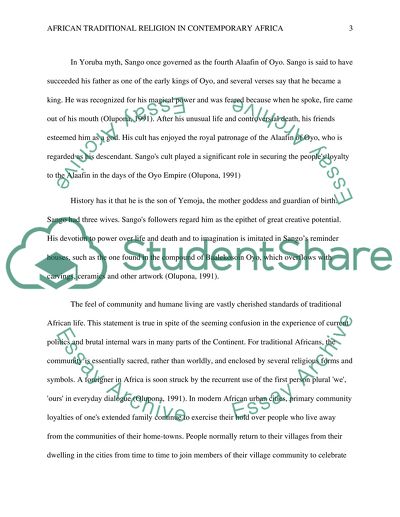The Place of African Traditional Religion in Contemporary Africa Essay. Retrieved from https://studentshare.org/religion-and-theology/1583023-the-place-of-african-traditional-religion-in-contemporary-africa
The Place of African Traditional Religion in Contemporary Africa Essay. https://studentshare.org/religion-and-theology/1583023-the-place-of-african-traditional-religion-in-contemporary-africa.


